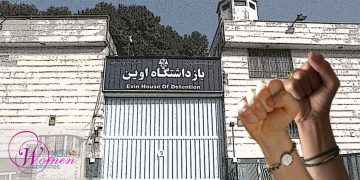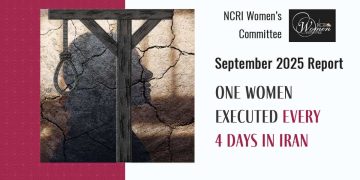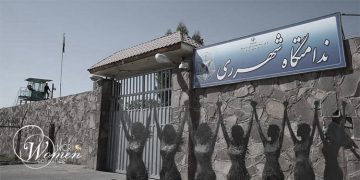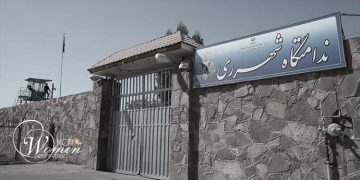Following the destruction of the administrative and entry facilities of Evin Prison on June 23, some 70 female political prisoners were suddenly and without prior notice transferred to Qarchak Prison in Varamin, in violation of the principle of separation of crimes.
The move was executed with alarming speed, chaos, and under intense security, triggering widespread concern about the fate of relocated prisoners.
Unprepared Transfer: No Access to Medicine or Medical Care
Several women sustained injuries during the explosions at Evin Prison. However, due to stringent security restrictions, they were denied immediate medical attention.
The abrupt transfer left many prisoners without the chance to gather critical medication, medical documents, or even personal items. Among them are women suffering from chronic conditions such as diabetes, heart disease, and autoimmune disorders, who now lack access to their essential medications, with no permission granted to receive replacements.
New Location: A Windowless, Polluted Hangar
The women have been relocated to an area known as the “Club” inside Qarchak Prison—a windowless, poorly ventilated metal hangar with unbearable heat, situated next to a waste incineration site.
Reports point out undrinkable water, inadequate sanitary and medical facilities, and a ban on phone calls and family visits.
Two days after the forced relocation, prisoners were permitted a brief and closely monitored phone call with their families.
Qarchak Prison: A Long Record of Systemic Abuse Against Women
Qarchak Prison has long been notorious as a symbol of the systemic abuse of female prisoners. It houses thousands of women charged with non-political crimes such as murder, theft, and drug offenses.
Over the years, recurring reports have emerged documenting physical and verbal abuse, discriminatory medical care, and appalling sanitary conditions.
Inmates in Qarchak are frequently denied regular phone access, basic hygiene products, and are often subjected to humiliation and violence by prison staff.
Some are forced to work long hours in prison workshops under harsh conditions to help support their families.
Direct Responsibility Lies with Prison Officials and Security Agencies
Days after the transfer, no official information has been released regarding the identities of the relocated prisoners or their registration in the Qarchak prison system. This lack of transparency has deepened concerns about their legal status and physical and psychological well-being.
This situation is coupled with uncertainty surrounding how long they will remain at Qarchak.
Currently, Soghra Khodadadi, the warden of Qarchak Prison, bears direct responsibility for the lives, health, and human rights of these political prisoners.
Any continuation of inhumane treatment or harm—physical or psychological—will be attributed directly to the prison administration, the Iranian Prisons Organization, and affiliated security agencies.
























